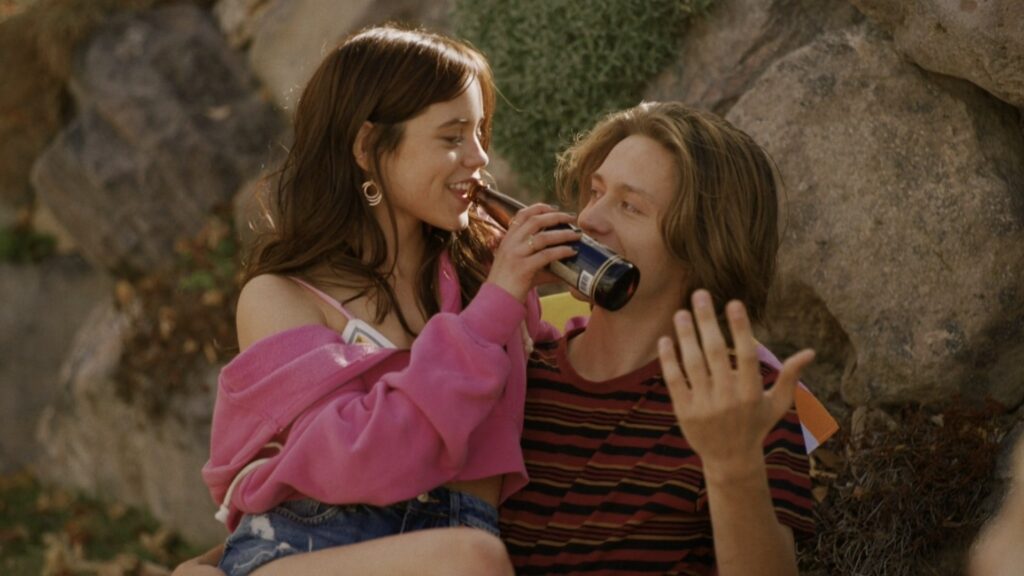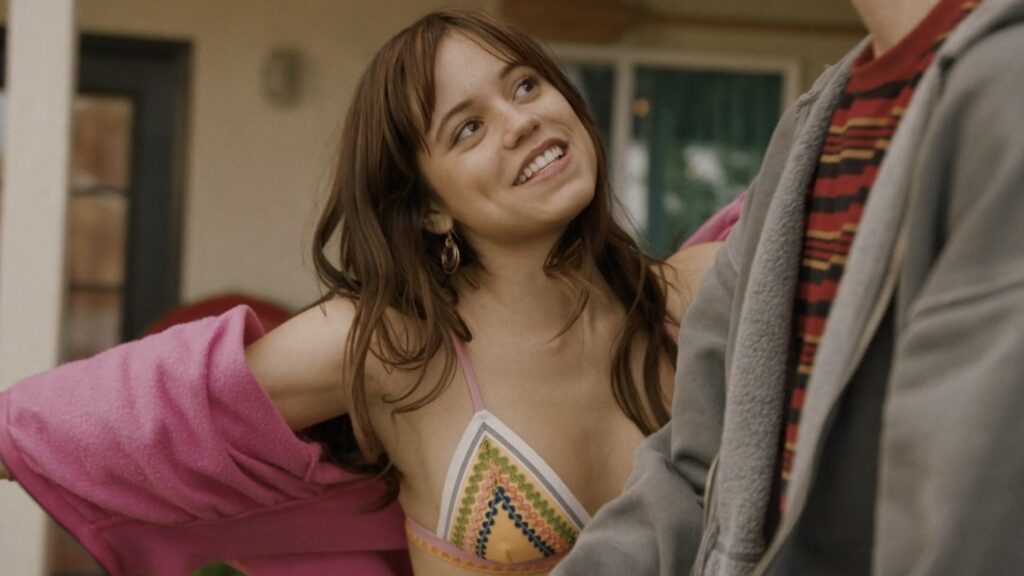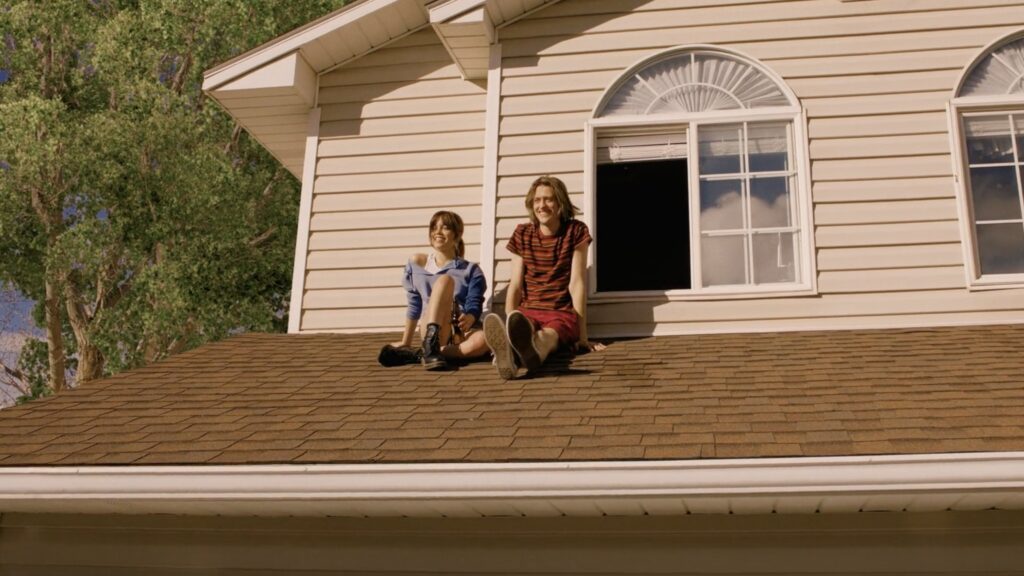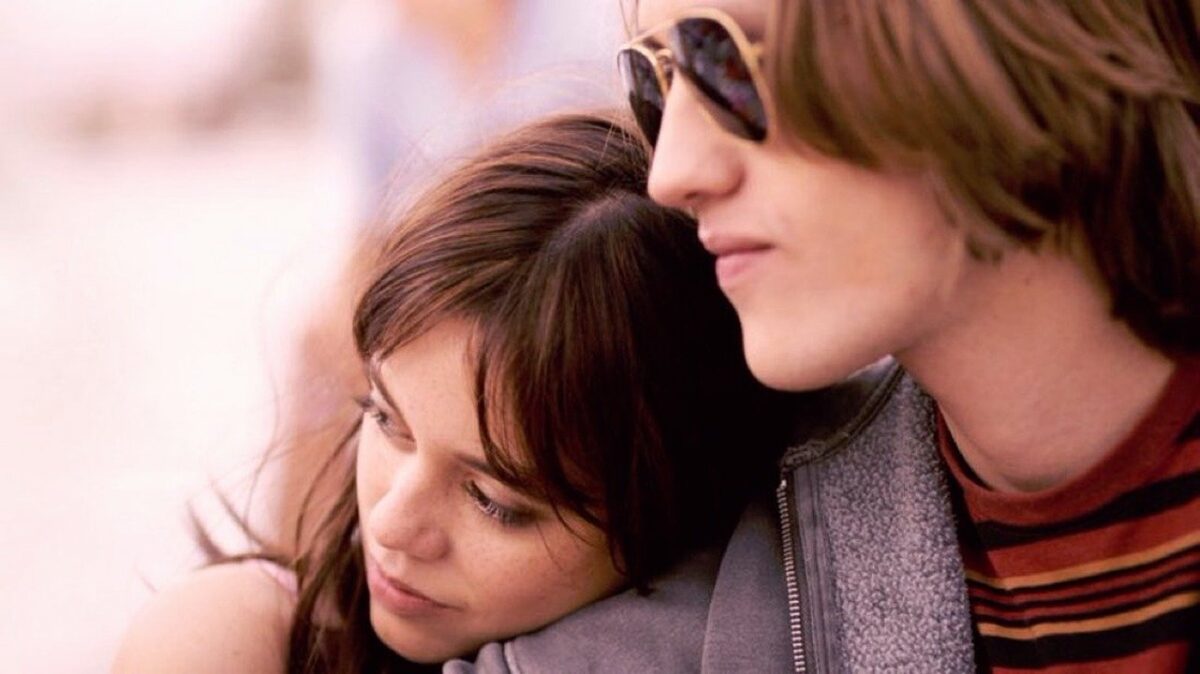All you have to do is call
Please send help. I have a problem. I’m addicted to low-stakes, made-for-streaming teen romances. These movies let me unwind in the evening by waxing nostalgic for my adolescence — first loves, mixtapes, the sweeping sense of possibility for the future. Netflix should just lean into this and start marketing them as a subgenre called “make 36 year olds wish they were 18 again”-core. Recent hits in this category include Hello, Goodbye, and Everything In Between, (The Statistical Probability of) Love at First Sight, and The Map of Tiny Perfect Things. I devour these movies like I’m still jotting anonymous notes to my crush in summer school (true story; we’re married now).
The tradeoff is that these films often aim for gauzy vibes and a cozy tone over, well, literally anything else. Winter Spring Summer or Fall is probably the worst offender on this front: it’s more mood board than movie. It wants to be a tone poem of teen romance — wistful, ephemeral, Instagram-filtered (does Instagram still do filters?). But dramatic heft and cinematic substance are simply not on the menu. And to some extent, that’s fine. I like vibes. I’m a vibes-heavy movie viewer. But a film needs a story, dangit, or at least a shape. Bones. There is such a thing as too airy, and this film oversteps that boundary.
Today’s entry in the wistful-teen-cinema catalog traces the will-they-won’t-they(-of-course-they-will) love story of Remi (Jenna Ortega) and Barnes (Percy Hynes White). (Yeah, I know… Remi and Barnes are some names.) The pitch is sound enough: the film is split into four chapters, each unfolding on a single day in a different season, as we watch their relationship bloom, fracture, and repair itself across the calendar. They meet in winter, reconnect at prom in spring, fall apart on a sweaty July Fourth, and put it all on the line in the crimson-leafed glow of a Boston autumn. On paper, it’s the kind of premise that promises emotional scope and seasonal melancholy. On screen, it doesn’t get that far.

We meet Barnes first, stoned on a suburban rooftop on a winter afternoon, when he spies Remi across the street fresh off a college admissions interview. Later that day, they bump into each other at a train station on the way to New York, heading into the city for different reasons — Remi to tour Columbia, Barnes to see The Talking Heads live. It’s a nice meet-cute that goes well right up until it doesn’t. They end up in an emergency room. Barnes asks her out; she declines, kindly but firmly. And with that, the movie kicks off its seasonal romance timeline: four loosely linked chapters that sketch out a relationship. (The opening chapter is the best of the four.)
It’s a structure that almost suggests something daring: four self-contained vignettes rather than a continuous romance. In practice, it’s pretty soft. There’s no ellipsis or feeling of change during the time jumps. The seasonal gaps feel more like long weekends with outfit changes than months of accumulated romance. Nothing goes unspoken, and every character development is explained away in a line or two of dialogue.
That sense of narrative drift might have been forgivable if the characters themselves were layered or unpredictable. But Remi and Barnes are less “characters” than lightly scented archetypes. She’s the shy, brainy girl who doesn’t realize she’s stunning; he’s the sensitive bad boy who knows 19th century authors and listens to “obscure” ‘80s bands on a beat up old speaker. Their quirks are less personality than accessory. Barnes has no long-term plans but vaguely dreams of working at a record label; Remi wants to be a public policy lawyer who fights for the rights of the marginalized. They’re the kind of characters you’re meant to project yourself onto — idealized teen templates, soft around the edges and ready to absorb your yearning.

But here’s the thing: I don’t really mind that. That’s the whole point of these movies. I lap this stuff up. They’re fantasy creatures, built on the unspoken contract that the beautiful people on screen will fall for each other in ways we always wanted to when we were eighteen. The specificity is supposed to be yours, not the characters’. You’re not watching Remi and Barnes because you’re deeply invested in their backstories: You’re watching because Ortega and Hynes White are attractive and lit like a Free People catalog cover, and you want to be them.
And it almost works. I kept wanting to like it. I kept waiting for the hook, the whammy, the thing that would pull me in: a scene that overcame the Netflix gloss, a needle drop that made my heart soar, etc. I didn’t need much: just enough to make the vibes stick. But the movie never quite meets me there.
I don’t blame the cast. The leads are just fine and understand the mission. Ortega is, to use the technical term, cute as a button. She plays Remi with big, expressive eyes and a pouty half-smile that suggests inner complexity the script never explores. She’s exactly the kind of girl I would have spent an entire semester silently pining for and never worked up the nerve to talk to. Hynes White, meanwhile, has carved himself a niche as the non-threatening dream boy, a crooked grin and “fell outta bed this way” handsomeness. He sells Barnes as someone who could believably show you his favorite album and tell you how it saved his life. He’s markedly more engaging here than in My Old Ass, though I still think his best turn to date is in I Like Movies, where he actually has some edge.
But this movie gives them so little to work with. It’s all just banter and off-handed moments. The script does some stuff I like with setup and payoff, plus repeated turns of phrase reused in new contexts as the film evolves — some “here’s looking at you, kid”-type motifs. But all of that needs to be the window dressing, not the guts. Even the film’s “big” moments — like Remi having a five-minute bad-girl phase and drunk driving a Jeep into a mailbox — register with all the dramatic scaffolding and impact of a TikTok rant. It’s treated with the same emotional weight as deciding where to get sushi.

That softness extends to the film’s presentation. The direction by debut director Tiffany Paulsen is run of the mill streaming fare, clean and digital and non-distracting. That’s all fine. It’s Netflix fodder; I wasn’t hoping for more. The editing by Simon Davidson flows like an Aeropostale commercial or a Shania Twain music video (I really need to update my references).
For a movie that hinges on two characters bonding over a shared love of music, the soundtrack is bafflingly anonymous. The film includes an early Talking Heads reference, and “Burning Down the House” gets a prom night dance floor needle drop, but otherwise it’s wall-to-wall drippy, snoozy indie pop playing in the background of a Starbucks. Compare this to The Greatest Hits from last year, which had a similar vibe (though more tragic and high-concept story), but actually curated a soundtrack that felt personal and evocative, like the filmmakers had an actual relationship to the music. Here, it’s just wallpaper. It’s especially frustrating because liking music is Barnes’ central character trait, but that seems to cap out at “knows who David Byrne is.”
Again, I was looking for ways to give this movie credit, and watching was never an unpleasant way to spend my evening. I even laughed once or twice (at a college party, one character dresses up as “slutty RBG”). But Winter Spring Summer or Fall is the cinematic equivalent of listening to the James Taylor song it pulls its title from on your commute home from work. Easy watching, easy listening, takes your mind off life for its pleasant duration, but leaves you unchanged.
Is It Good?
Nearly Good (4/8)
Dan is the founder and head critic of The Goods. Follow Dan on Letterboxd. Join the Discord for updates and discussion.

